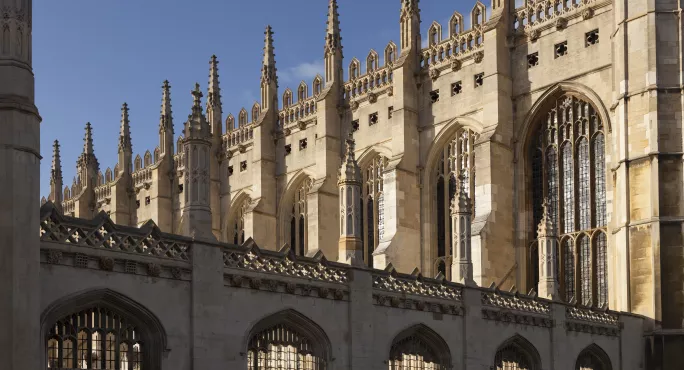ITT: University of Cambridge submits application

The University of Cambridge has submitted its application at the eleventh hour to the government’s initial teacher training (ITT) reaccreditation process but could still withdraw at a later stage.
In a statement issued this morning, the university said that the decision to proceed with the application, which was made late on, is dependent on clarifications made by the Department for Education being published in the main ITT criteria, as well as concerns about stage 2 guidance being resolved.
The university had previously decided not to apply in the first round of the process following concerns around what it described as “important inconsistencies” in the ITT review proposals.
- ITT: Almost two-thirds of providers not accredited in first wave
- Ofsted: 46% of new ITT inspection judgements less than ‘good’
- ITT: £650-a-day advisers to ensure ‘smooth market exit’ for providers
- Training: ITT applications plummet 24%
But on the deadline for second-round applications today, the University of Cambridge said the decision had been taken “after consultation with colleagues in our partner schools” and amid the “nationwide shortfalls” in teacher recruitment.
The statement said the university was “keen” to help “alleviate the recruitment crisis”.
DfE issues clarifications around reforms
The university said it had made the decision to progress with its application after the DfE issued a number of clarifications regarding its ITT reforms.
These addressed “several concerns previously raised by the Faculty of Education”.
The university was previously concerned that changes under the criteria could “constrain high-quality initial teacher education (ITE)” at the provider.
But the statement said the DfE had confirmed that there would be “additional flexibility around the requirements for ‘Intensive Training and Practice’ and mentoring”, as well as assuring that providers will “retain the freedom to use their own expertise and evidence base as the cornerstone of their curricula, while integrating the requirements of the Core Content Framework”.
The university also understands the clarifications will become a part of the ITT Criteria in 2024-25 and so has “sufficient confidence” to submit an application.
The university said it “hopes to be able to pursue” its application “to completion”.
Further ‘obstacles’ raised by stage 2
However, the statement said that the publication of stage 2 guidance on 17 May had raised a “number of potential obstacles to providing outstanding ITE at Cambridge”.
Providers who pass the accreditation process will enter stage 2 - a triage process in order to identify “areas for improvement remaining”.
A spokesperson for the University of Cambridge said it understood that the government was “already consulting more widely with a view to revising the stage 2 guidance” and the university awaited the outcome.
The guidance also clarified that initial teacher training providers could have their accreditation withdrawn at a later stage despite getting initial approval.
The Universities’ Council for the Education of Teachers (UCET) has previously said it “expressed concern” over the “apparently heavy-handed and ‘policing’ type nature” of stage 2.
The University of Cambridge said it echoed the views of bodies such as UCET that stage 2 “will constrain providers and therefore restrict quality”.
A spokesperson for the University of Cambridge said the Department for Education had issued policy clarifications regarding the initial teacher training (ITT) reforms.
The clarifications address “several concerns that the Faculty, and other initial teacher education (ITE) providers, had raised”.
The spokesperson said the university understood the clarifications will now be “embedded into the new ITT criteria from September 2024”.
“On the assumption that they will, and that the government will continue to engage with the sector about elements that remain problematic, we currently have sufficient confidence to apply for stage 1 of the accreditation process and have submitted an application.”
The spokesperson said the faculty “intends to continue to deliver world-leading teacher education” through “innovative, personalised programmes that continually evolve on an evidence-informed basis”.
They added: “We will continue to monitor whether the reforms remain compatible with these standards.”
Register with Tes and you can read two free articles every month plus you'll have access to our range of award-winning newsletters.
Keep reading with our special offer!
You’ve reached your limit of free articles this month.
- Unlimited access to all Tes magazine content
- Save your favourite articles and gift them to your colleagues
- Exclusive subscriber-only stories
- Over 200,000 archived articles
- Unlimited access to all Tes magazine content
- Save your favourite articles and gift them to your colleagues
- Exclusive subscriber-only stories
- Over 200,000 archived articles



